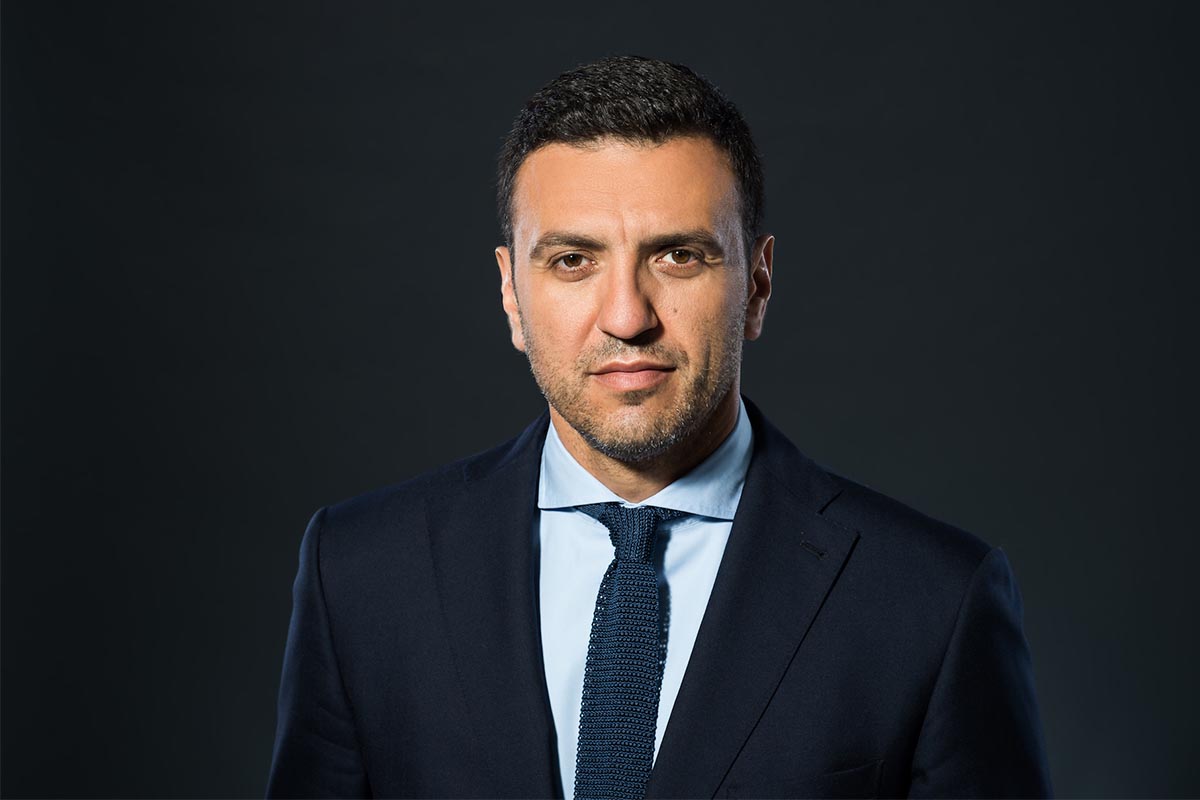
01 Sep Nowhere better in Europe
Vasilis Kikilias, Minister of Tourism, encouraged by Greece’s resounding successes through the pandemic years, is prepared for the years to come.
Greece has, by many accounts, had a good tourism season. With over 2 million visitors for July-August, and hotels still maintaining 63% occupancy in September, it was the top destination for many Europeans. Remarkably, more French tourists visited Greece than holiday destinations in their own country. To what do you attribute this to the success of Greece’s ‘Open For Tourism’ campaign? How do you reconcile these successes with the loss of traditional tourism source markets, such as the US and Asia?
Greek tourism has shown remarkable resilience. At the beginning of the season, we were anticipating reaching 50 percent of the 2019 figures. All provisional data shows that we outperformed our original estimates. After a hesitant start in May, from June onwards to October and November, we have managed to go beyond the original goal of 50 percent of 2019. Furthermore, data shows a positive trend in qualitative figures as well. An example of this could be the average expenditure per trip, which rose to over $700 this year (in 2020 it was $678 and in 2019 was $623). As well, the average length of stay has grown by a good degree. The estimates by industry officials, based on the positive performance in autumn months, raises the total revenue to nearly of $14 billion. I must stress that the original predictions were closer to $7 billion. We are very happy to see that visitors continue to opt for Greece in September and October. November look promising too. These results didn’t come by chance. The Greek government were very clear from the beginning of the season that, while we will open, protocols will still apply.
We instilled a sense of safety, and this was a crucial factor in the decision of foreign visitors to choose Greece. It is also important to note that the prime minister was the one who initiated the discussion on an EU vaccination certificate. This was a tool that allowed for the better movement of EU citizens, and its success is proven by the fact that third countries applied for the same mechanism. Additionally, the US market was not absent this year. It was the year that we had more direct flights to Athens than ever before.
What are the strategic priorities for the new era?
A strategic priority of the Greek government is to boost high-quality investment projects and promote high-added value green entrepreneurship in tourism. Toward this end, a number of initiatives and actions has been taken, such as the establishment of the Special Service for the Promotion and Licensing of Tourism Investments (EYPATE) and the rationalization of the regulatory framework in order to facilitate fast track investments.
Considerable possibilities of investments in the Greek tourism market are the following: the upgrade and/or establishment of new hotel units and spa centers; the upgrade of the tourism product addressed to high-end segments; and special tourism infrastructure, such as tourism ports & marinas, thematic parks, health and sport facilities and congress halls.
In addition, our 10-year strategy (National Strategic Planning for Tourism Development 2030) has been launched in the midst of this particularly difficult period in terms of challenges and competition. The 10-year plan for Greek tourism, therefore, will be coordinated with the priorities of the European Recovery Fund.
Based on these exigencies, new financial tools will be formed from 2021 and in the years to follow. Main axes include product development and promotion, accessibility and connectivity, green infrastructure and sustainable touristic development, destination and experience management, tourism education and training, a whole-of-government approach, and regulatory framework and crisis management. Said axes are widely mentioned by tourism stakeholders as necessary to improve the management and quality of the national tourism product.
What mix of your policies will lead to increased investment in tourism? What is the ideal balance for the new development model of the country?
The tourism ecosystem consists of primary and supporting sectors. In this ecosystem, transport is a key sector and infrastructure is supportive. Both must work harmoniously with the overall tourism ecosystem so that tourism experience can perform at its full potential. The Ministry of Tourism is in the process of capturing its medium/long-term strategy for the decade after the pandemic. The important resources that are expected to flow into the country to strengthen investments in key sectors of the Greek economy are expected to give the impetus needed by tourism to gain resilience and to adapt to the new demands of digital transformation.



Sorry, the comment form is closed at this time.